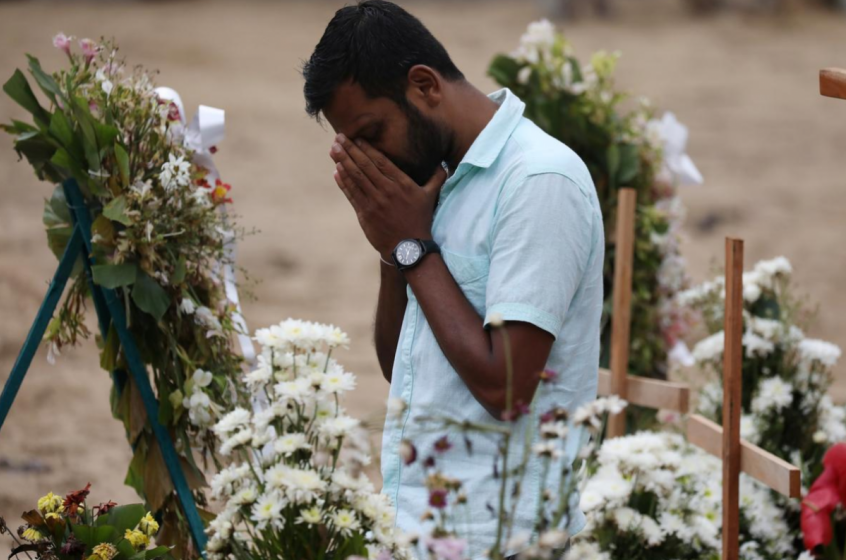
Churches across Sri Lanka fell silent on Sunday as the country's Christian minority continues to fear more attacks after last week's deadly suicide bombings.
Over 200 people were killed, including dozens of children, when suicide bombers targeted three churches and several hotels mainly in Colombo.
The churches were attacked on the holiest day in the Christian calendar as hundreds of churchgoers were attending Easter Sunday services.
Leaders of the Anglican Church in Sri Lanka told its churches to "prayerfully discern" whether to go ahead with services today.
They said churches could consider "creative means" for parishioners to observe Sunday worship if they decided to cancel the usual services.
The Catholic Church suspended all masses across the island on Sunday in the wake of the attacks.
The Archbishop of Colombo, Cardinal Malcolm Ranjith, delivered a televised sermon from a chapel at his home that was attended by President Maithripala Sirisena, Prime Minister Ranil Wickremesinghe and former President Mahinda Rajapaksa.
Together, they lit candles in memory of the dead following the service.
"We cannot kill someone in the name of God... It is a great tragedy that happened," the Archbishop said in his sermon.
"We extend our hand of friendship and fraternity to all our brothers and sisters of whatever class, society or religion that differentiates us."
Steven Selvaraj, South Asia Team Leader at Christian Solidarity Worldwide, told Christian Today that the situation remained tense and some Christians were resorting to holding worship in their homes.
"Almost all churches have been asked to be closed. It is very tense there," he said.
"There are many churches and Christian based organisations that are working on security plans for churches.
"And the situation is such that they have to both do short and long term planning against any terror attack that could arise as more bombs and bomb making equipment have been discovered recently.
"Christians are certainly afraid of more attacks – no doubt."
He asked Christians in the UK to pray for "godly assurance in this time of chaos and confusion".
"The attacks have broken hearts and can blind people to the truth at this time. People have not just lost loved ones, but the loss could also test people's faith," he said.
He asked for prayers of comfort and healing for those directly affected and that the Sri Lankan government would take "decisive action" to bring the perpetrators to justice and protect churches.
"Reports indicate that the government was briefed about a terror attack months before but had not acted on it. There is a breakdown in the government ministries," he said.
He also asked for prayers for the Muslim community so that there would be "no escalation of reprisals" and for unity among the various ethnic and religious groups in Sri Lanka.













